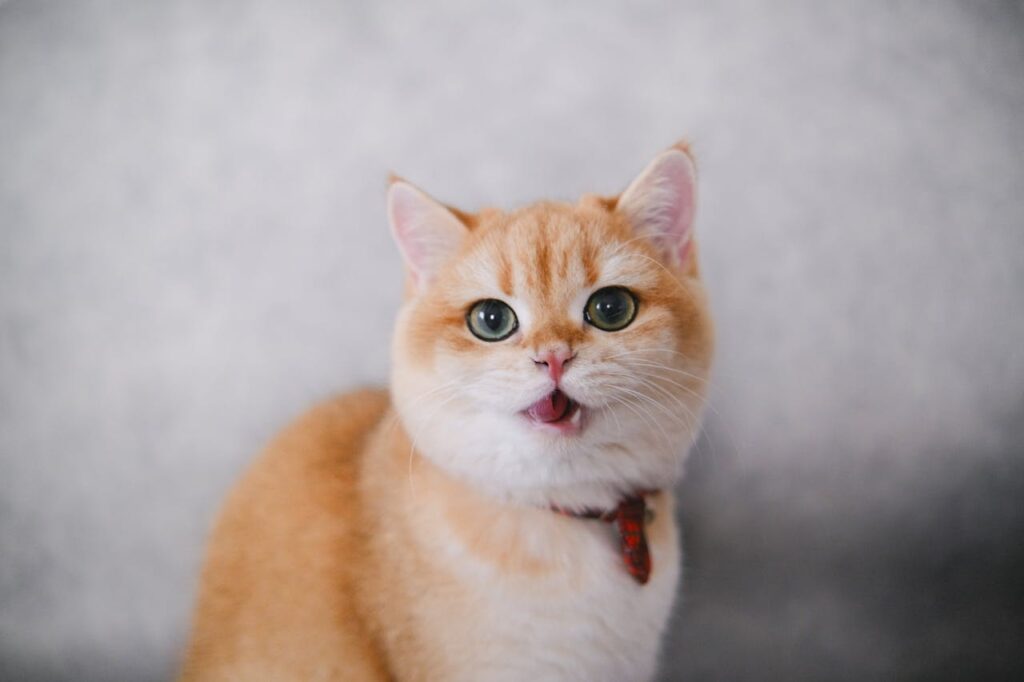Unlike dogs, who frequently pant to cool down, cats rarely engage in this behavior. When they do, it’s essential to understand why and when it might signal a more serious issue.
Causes of panting in cats
Physical activity and exertion
Just like humans after a sprint, cats might pant briefly after intense play or exertion. Young kittens may exhibit exertional panting more frequently.
Heat exchange and cooling off
Cats don’t sweat like humans. Instead, they may pant for a short period of time to cool themselves down.
Stress
Stress and anxiety can trigger panting in cats.
Sniffing the air (Flehmen response)
Cats will sometimes perform a Flehmen response, where they open their mouth while sniffing for a short period of time to get a better sense of intriguing smells. This response is different to prolonged open-mouthed breathing, though you may mistake it for panting.
Underlying medical issues
While occasional and brief panting as outlined above may be normal, persistent or unexplained panting should raise concern. It could be a sign of pain or a sign of an underlying medical problem.
If your cat is panting for a prolonged time or panting for no clear reason, take them to the vet ASAP. Open-mouth breathing is not normal in cats.
How to help a panting cat
Calming a hot cat
Move your cat to a cool, quiet spot. If air conditioning isn’t available, a fan can be helpful. Provide fresh water.
Dampen a towel and stroke areas like the chin, ears, paws, and belly. Don’t fully cover your cat with wet towels as this can block air flow and may cause them to overheat more.
Calming a stressed cat
Remove your cat from stressors, such as loud noises, other pets, or visitors. Create safe hiding places and consider using synthetic pheromones, such as Feliway, to help your cat feel more relaxed.
Learn more about how you can help a stressed and anxious cat here.
Calming a tired cat
If your cat starts to pant during play, remove the toy and encourage them to calm down. Encourage them to rest and catch their breath in a quiet area. Avoid overexertion on hot days.
Cats with an abnormal breathing pattern and/or unexplained panting
Any abnormal breathing patterns may indicate an underlying problem, particularly if your cat is also sneezing, coughing, or not interested in eating.
If your cat is panting with these signs or panting for no apparent reason (like cooling down in summer or after excessive exercise), it’s time to consult your vet.
While normal panting is usually harmless, abnormal breathing rates or patterns may signal underlying health issues. Regular veterinary check-ups, environmental adjustments, and prompt attention to abnormal signs can help keep your feline friend happy and healthy.



